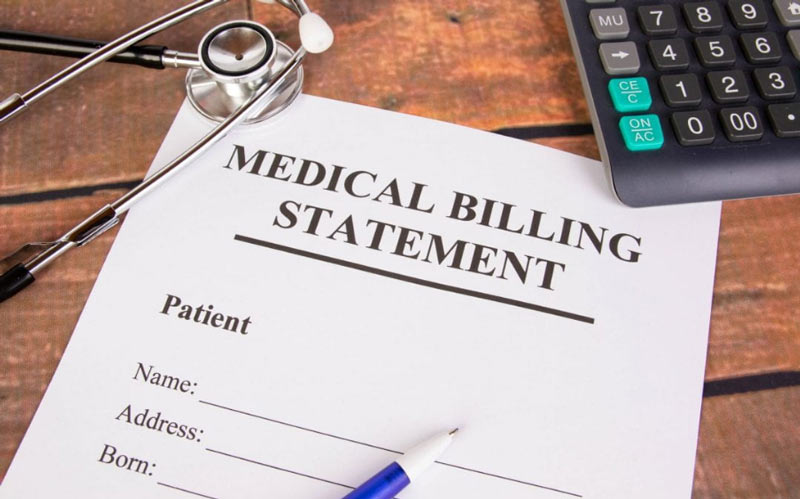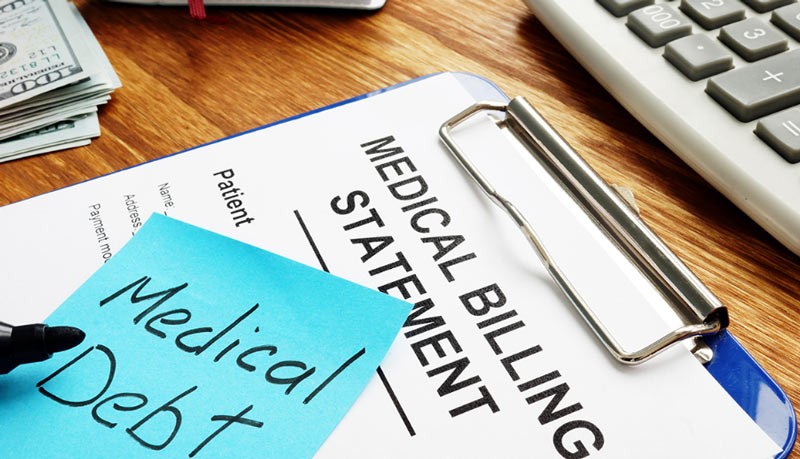Medical expenses can often significantly affect our finances, burdening us. However, some efficient ways exist to save on medical costs and reduce financial hardship. This article will discuss techniques to save money on medical bills to help you manage your healthcare spending.
How to Save Money on Medical Bills?
 Below mentioned are some effective ways to Save Money on Medical Bills:
Below mentioned are some effective ways to Save Money on Medical Bills:
Understand Your Health Insurance Coverage
Understanding your health insurance is essential to cutting medical costs. One must check their insurance for coverage, exclusions, and out-of-pocket expenditures. Co-pays, deductibles, and co-insurance percentages affect your financial liability.
Choose In-Network Providers
Choosing healthcare providers, hospitals, and clinics within your insurance network is essential when seeking medical care. In-network providers have negotiated contracts with insurance companies, lowering service rates. You may pay a larger share of the bill if you go out-of-network. Check the provider's insurance network before scheduling an appointment.
Utilize Preventive Care
Health and cost savings depend on prevention. Use your insurance for immunizations, screenings, and yearly checkups. These preventive measures can help detect and address potential health issues early on, preventing the need for expensive treatments in the future. You can reduce the likelihood of high medical bills by staying proactive about your health.
Shop Around for Healthcare Services
Like any other product or service, comparing prices for healthcare services is important. Before scheduling a medical procedure or test, consider obtaining quotes from different providers. You may be surprised to find significant price variations for the same service. Contact multiple healthcare facilities, clinics, or diagnostic centers, and ask for cost estimates. By shopping around, you can make an informed decision and save substantial money.
Ask for Generic Medications
Prescription medications can significantly contribute to medical bills, especially if you require long-term treatment. When discussing treatment options with your healthcare provider, inquire about generic alternatives. Generic drugs have the same active ingredients as their brand-name counterparts but are generally much more affordable. Asking for generic medications can lead to substantial savings on your prescription costs.
Take Advantage of Prescription Assistance Programs
Many pharmaceutical companies offer prescription assistance programs to help individuals with limited financial resources access necessary medications at reduced costs. These programs provide discounts, coupons, or even free medications to eligible individuals. Research available prescription assistance programs for the necessary medicines and determine your eligibility. Taking advantage of these programs can significantly reduce your out-of-pocket expenses.
Negotiate Medical Bill
If you are worried about how to negotiate medical expenses, then you should not. If you have a high bill or financial trouble, approach the billing department or the healthcare provider's financial aid office. Also, explain to them your financial position and request discounts, payment arrangements, or financial help. Many healthcare professionals are prepared to collaborate with patients to cut costs.
Review Your Medical Bills Carefully
Medical billing errors are not uncommon and can lead to inflated costs. Examine your medical invoices and compare them to your services. Look for any discrepancies or duplicate charges. If you identify any errors, contact your healthcare provider's billing department or your insurance company to have them rectified. Correcting billing errors can significantly reduce your medical expenses.
Make Maximum from Health Savings Accounts (HSAs)
HSAs are suitable for high-deductible health insurance plans. HSAs enable pre-tax medical spending savings. Tax-deductible HSA payments grow tax-free. By contributing to an HSA, you can save on medical costs while enjoying potential tax advantages. Be sure to understand the eligibility criteria and contribution limits associated with HSAs.
Explore Flexible Spending Accounts (FSAs)
Another valuable tool to save on medical expenses is a Flexible Spending Account (FSA). If your company offers an FSA, you can contribute pre-tax funds for qualified medical costs. An individual can utilize FSAs to cover their co-pays, deductibles, prescriptions, and hospital supplies as well.
Consider Medical Tourism
Exploring medical tourism can save significant costs for specific medical procedures or treatments. Medical tourism entails traveling overseas to seek cheaper healthcare options. There are numerous countries that provide affordable yet high-quality medical treatments. However, thoroughly research and choose reputable healthcare providers to ensure safety and quality standards are met.
Research Financial Assistance Programs
Hospitals and healthcare organizations often have financial assistance programs to help individuals with limited financial resources. These programs may offer discounts, payment plans, or charity care for eligible patients. Contact the hospital's financial assistance office or social worker for available programs. They can guide you through the application process and help alleviate some of the financial burdens associated with medical bills.
Stay Proactive with Your Health Insurance
Regularly review your health insurance policy to ensure it still meets your needs. Insurance plans change over time, and more cost-effective options may be available. You can also consider any other alternative plans if you are getting married, divorced, or having a kid. If you are someone who is very careful about their health, you can get good health insurance at the most affordable price that can help you save money on medical costs.
Investigate Prescription Drug Assistance Programs
If you require expensive prescription medications, investigate prescription drug assistance programs provided by pharmaceutical companies or nonprofit organizations. These programs offer discounts, co-pay assistance, or patient assistance programs to help individuals access necessary medications at reduced costs. Your healthcare provider or pharmacist can provide information about available programs and guide you through the application process.
Stay Organized with Medical Records

Maintaining organized medical records is essential for managing your healthcare expenses effectively. Keep track of all medical bills, your insurance company's explanation of benefits (EOB) statements, and any other relevant documents. This documentation will help you identify billing errors, ensure insurance claims are processed correctly, and serve as a reference for future medical treatments or discussions with healthcare providers.

How to Save Money on Medical Bills?

What Is a Low-Interest Personal Loan?

Who Qualified for Home Affordable Modification Program

How to Sell a Car? Some Effective Ways of Selling a Vehicle

Robinhood Business Model- How do they make money?

What is Statement of Financial Accounting Concepts (SFAC)?

Auto Insurance Advice From a Consumer Advocate

Best Growth ETFs

What is the Effect of Petrodollar on US Dollar?

Word-of-Mouth Marketing: Types and Benefits of word-of-mouth marketing

Local Tax: What is Impact of Local Taxation?
